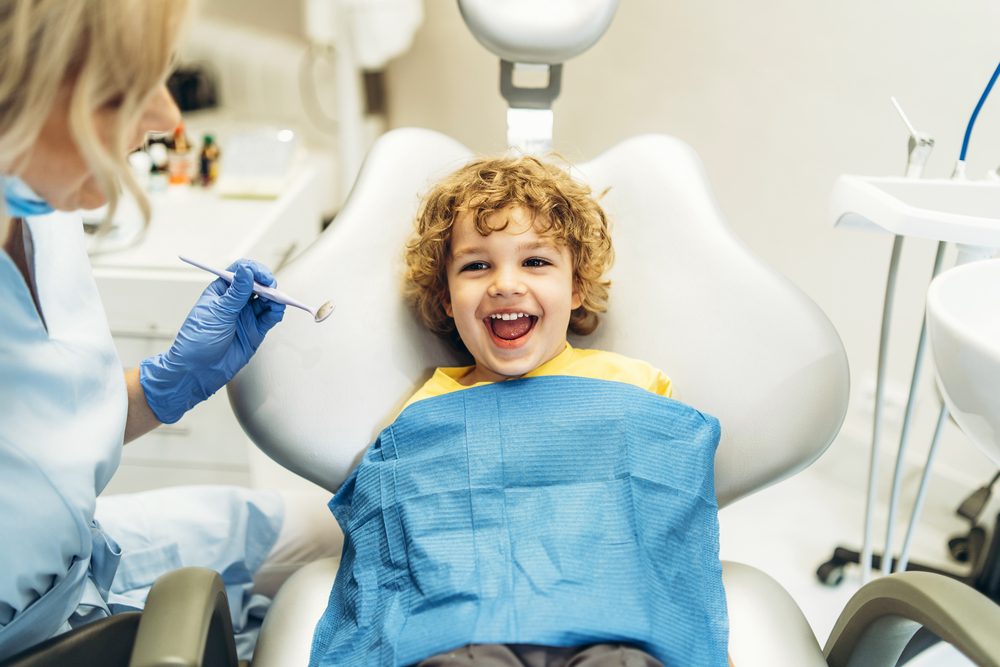
4 Benefits of Early Childhood Dental Visits
Starting your child’s dental care journey early can have a profound impact on their overall health and well-being.
Let’s delve into the four key advantages of introducing your child to the dentist from a young age.
Establishing a Positive Dental Relationship
Early dental visits set the stage for a lifelong positive relationship with oral health care. When children become familiar with the dental environment at an early age, it reduces anxiety and fear associated with dental appointments later in life.
Prevention and Early Detection
The old saying “prevention is better than cure” is especially true in dentistry. Regular early dental visits allow our skilled team to monitor your child’s oral development closely.
By identifying potential issues in their infancy, we can take proactive measures to prevent more serious problems down the road. From teaching proper brushing techniques to advising on a tooth-friendly diet, these visits pave the way for a healthier smile.
Dental Education for Parents and Children
Early dental appointments at Kids Dental are not only for your child’s benefit – they also provide an opportunity for parents to learn about effective oral care practices. Our experienced pediatric dentists will guide you through the best ways to maintain your child’s oral hygiene at home. We believe that informed parents contribute to a child’s successful dental journey.
Additionally, children can learn about the importance of oral health through interactive and engaging sessions, setting the foundation for a lifetime of good habits.
Monitoring Growth and Development
Your child’s dental development is a dynamic process, and early childhood dental visits allow us to track this progression. From the first tooth coming out to the development of permanent teeth, our team can identify any deviations from the normal growth pattern. This proactive approach ensures that any potential issues are addressed promptly, leading to healthier teeth and optimal oral development. If you liked this blog, check out this one on, “4 Signs of Teething in Newborns.”
